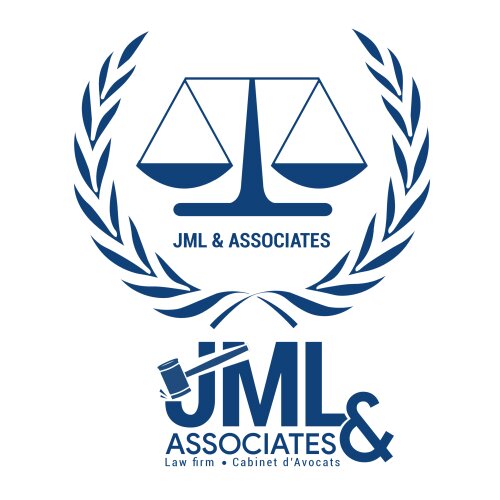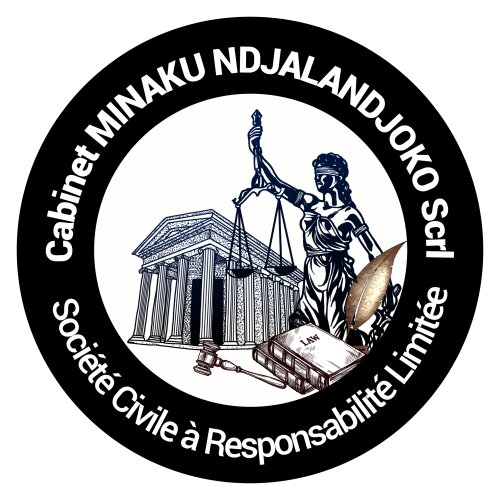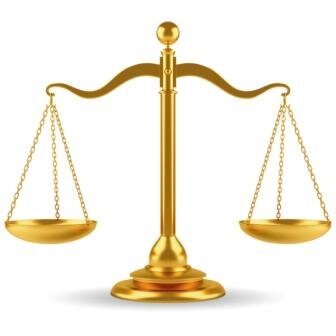Best Appeal Lawyers in DR Congo
Share your needs with us, get contacted by law firms.
Free. Takes 2 min.
Or refine your search by selecting a city:
List of the best lawyers in DR Congo
About Appeal Law in DR Congo
Appeal law in the Democratic Republic of Congo (DR Congo) entails the process of seeking a formal change to an official decision by a court or other legal authorities. This occurs when a party involved in a legal proceeding believes that there has been an error in the trial's procedure or the interpretation of laws. The appeal process allows for the scrutiny of decisions made in criminal and civil cases, and ensures that justice is served appropriately by examining whether the initial proceedings adhered to legal standards.
Why You May Need a Lawyer
There are several situations where enlisting the help of a lawyer is essential in appeal matters:
- Complex Legal Procedures: Navigating the procedural nuances of an appeal can be daunting without professional expertise.
- Unfavorable Court Decision: If you believe that a court decision is unjust or based on misinterpretation of law, a lawyer can help challenge it.
- Time Constraints: There are strict deadlines for filing appeals, and missing them can forfeit your right to appeal. Lawyers ensure that these timeframes are adhered to.
- Evidentiary Issues: If crucial evidence was wrongly admitted or excluded, an attorney can effectively argue for a reconsideration.
- Technical Expertise: Lawyers understand how to present and argue legal issues effectively before appellate courts. This involves crafting persuasive written briefs and oral arguments.
Local Laws Overview
The legal system in DR Congo is based on a civil law system, influenced significantly by Belgian law. In appeal matters, it is critical to understand:
- Hierarchy of Courts: Appeals generally move from lower courts to higher courts, culminating at the Court of Cassation, which is the highest court for judicial matters in DR Congo.
- Admissibility of Appeals: Not every decision is appealable. For an appeal to be admissible, it must typically involve a point of law or significant procedural error.
- Time Limits: There are specific time limits within which appeals must be lodged after a judgment is rendered, usually within 30 days.
- Procedural Rules: The procedure for filing an appeal involves preparing and submitting detailed legal briefs and, in some cases, presenting oral arguments.
Frequently Asked Questions
What is the first step in filing an appeal?
The first step is to file a notice of appeal within the time frame set by law. This notifies the court and the opposing party that you intend to seek a judicial review of the decision.
Can I appeal any court decision?
No, only decisions that meet specific legal criteria can be appealed, usually where there has been an error in application of the law or a significant procedural error.
How long does the appeal process take?
The duration of the appeal process can vary widely. It may take several months to a year or more, depending on the complexity of the case and the court’s schedule.
What are my chances of winning an appeal?
Success in appeals depends on the strength of your legal arguments and errors identified in the original judgment. Your lawyer can provide guidance on the likelihood of success.
What happens if my appeal is successful?
If an appeal is successful, the appellate court may reverse or modify the lower court's decision, or remand the case for a new trial.
Will I need to appear in court during the appeal process?
In many cases, appeals focus on written briefs, but there may be oral arguments where your presence could be required alongside your lawyer.
What costs are involved in appealing a case?
Appealing a case involves costs like court fees, attorney fees, and potential costs for preparing transcripts and legal documents.
Can I change lawyers for my appeal?
Yes, you can choose to retain a different lawyer specialized in appellate law for handling your appeal.
Is there any financial assistance available for appeals?
There may be programs or legal aid organizations in DR Congo that offer assistance or reduced fees for those who qualify based on income.
What if the appeal is denied?
If an appeal is denied, you may potentially appeal to a higher court, if legal grounds exist, or consider other legal remedies or settlements.
Additional Resources
Consider the following resources for further assistance with appeal matters in DR Congo:
- The Congolese Bar Association: Offers guidance and can refer you to qualified appellate lawyers.
- Ministry of Justice and Human Rights: Provides official information on the legal process and rights in DR Congo.
- Non-Governmental Organizations: Certain NGOs may offer legal advice and support, particularly in human rights cases.
Next Steps
If you need legal assistance in an appeal, consider the following steps:
- Consult an Attorney: Seek an initial consultation with a lawyer who specializes in appeals to discuss your case and understand your options.
- Gather Documentation: Compile all necessary documents related to your case, including the original judgment and any evidence that supports your appeal.
- Act Promptly: Be mindful of the time constraints associated with filing an appeal, and proceed quickly to ensure all deadlines are met.
- Prepare Financially: Understand the potential costs involved and explore options for legal aid if necessary.
Lawzana helps you find the best lawyers and law firms in DR Congo through a curated and pre-screened list of qualified legal professionals. Our platform offers rankings and detailed profiles of attorneys and law firms, allowing you to compare based on practice areas, including Appeal, experience, and client feedback.
Each profile includes a description of the firm's areas of practice, client reviews, team members and partners, year of establishment, spoken languages, office locations, contact information, social media presence, and any published articles or resources. Most firms on our platform speak English and are experienced in both local and international legal matters.
Get a quote from top-rated law firms in DR Congo — quickly, securely, and without unnecessary hassle.
Disclaimer:
The information provided on this page is for general informational purposes only and does not constitute legal advice. While we strive to ensure the accuracy and relevance of the content, legal information may change over time, and interpretations of the law can vary. You should always consult with a qualified legal professional for advice specific to your situation.
We disclaim all liability for actions taken or not taken based on the content of this page. If you believe any information is incorrect or outdated, please contact us, and we will review and update it where appropriate.
Browse appeal law firms by city in DR Congo
Refine your search by selecting a city.
















